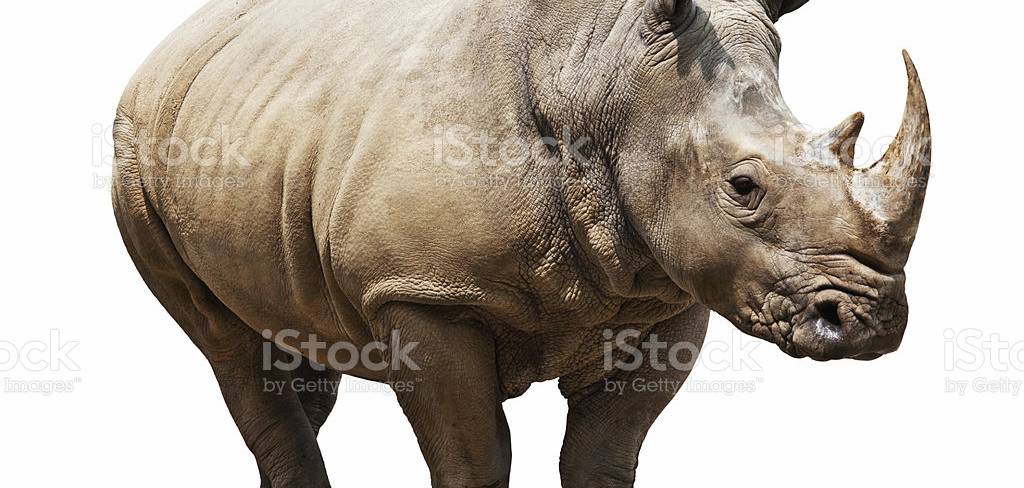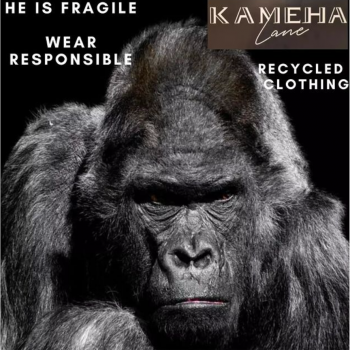
Forests, Fisheries and Environment Minister Barbara Creecy said the ministry was using integrated approaches to deal with increasing rhino poaching and horn trafficking.
This was revealed in a parliamentary question from IFP spokesperson for environmental affairs, forestry and fisheries, Narend Singh.
A total of 249 rhinos were poached for their horns in South Africa from January to the end of June this year and although the number is higher than last year, when 166 rhinos were killed, it was less than the 318 rhinos poached in 2019.
Creecy said the ministry is using a multidisciplinary integrated strategic management approach in line with the National Integrated Wildlife Trafficking Strategy.
The introduction of the seven integrated wildlife areas across the country has strengthened coordination between public and private partners operating in these areas.
“The necessary resources are redirected to the areas most in need of support and lessons learned are shared, including those related to the use of appropriate technologies to ensure surveillance, early warning and detection. Real-time information sharing between these partners translates into the ability to proactively deploy to specific areas and respond quickly to complete reports in a coordinated fashion , ”said Creecy.
She said that through the center, the department had an increased analytical capacity to provide support at the tactical level.
This work has further strengthened collaboration with the South African Police Service (SAPS), the Hawks (a special South African police unit tasked with combating corruption and organized crime), the Ministry of Justice and other sectors of the government. security group to collect, analyze and share intelligence on wildlife trafficking so that crimes related to international unions can be dealt with effectively.
They have also invested in protecting rhinos through planned intensive surveillance that complements anti-poaching initiatives focused on arresting poachers. Kruger National Park is investing in a tiered approach to protect rhinos using integrated technologies and is establishing a program to improve staff integrity and morale.
Kim Da Ribeira, director of Outrage SA Citizens Against Rhino Poaching, said the Environmental Law Enforcement Center was a new initiative and its effectiveness was not being felt. People had not seen a “reallocation of resources” or additional support.
“Rhino poaching is motivated by transnational organized criminal syndicates. This is something that we have known for a long time but without really addressing the problem. We still do not tackle corruption in the parks. There is absolutely no point in stopping poachers without following the trail to the top. We do not seem to have adequate capacity within our services to enforce the law as it should. "
The white rhino or square-lipped rhino is the largest extant species of rhino. It has a wide mouth used for grazing and is the most social of all rhino species. The white rhino is the second largest land mammal and is relatively unaggressive, which is why poaching for its horn is the main threat. It's an epidemic and, according to the World Wide Fund for Nature, more than 1,050 rhinos were killed in 2016 in South Africa alone.
DEFF fights against wildlife trafficking but challenges remain
The Ministry of Environment, Forests and Fisheries (DEFF) is trying to fight against the trafficking of wild species of rhinos, elephants, lions, leopards, pangolins and succulents, but remains confronted with challenges.
DEFF unveiled its challenges and relevant statistics when briefing the Committee on Environment, Forests and Fisheries.
Six men appeared in Verulam Magistrates' Court after they were found in possession of two elephant tusks they were trying to sell.
According to the National Biodiversity Law on Environmental Management, illegal ivory trade is a criminal offense and anyone found guilty could face a maximum sentence of 10 years in prison or a fine of R10 million. .
Elephant populations in many African countries have been hit hard while South Africa has successfully tackled the threat.
No one has been charged or prosecuted for elephant poaching, but there have been numerous seizures of ivory including products, tusks and pieces.
However, in Limpopo (a province of South Africa created in 1994 in the north of the former Transvaal province. Located in the extreme northeast of the country, Limpopo takes its name from the river that forms its northern border. ), an accused was found in possession of two unlicensed elephant tusks which he attempted to sell and was sentenced to six years' imprisonment, half of which was suspended.
The most threatened animal is the rhino - 394 were poached in 2020. Most of these rhinos were poached in December (63) and November (55).
A total of 93 rhinos were poached in KZN (KwaZulu-Natal is a coastal province in South Africa).
However, from 2016 to 2020, there were 233 cases leading to a conviction rate of 95.5% with 362 accused.
According to the presentation, DEFF had an integrated national strategy to combat wildlife trafficking, as it involved prosecution, detection and collaboration - improving law enforcement, supported by the whole government and society to effectively investigate, prosecute and prosecute wildlife trafficking as a form of transnational organized crime; increase government capacity to detect, prevent and combat wildlife trafficking in South Africa and beyond; and increase national, regional and international law enforcement collaboration and cooperation in combating wildlife trafficking.
However, DEFF said they face a number of challenges in their fight against wildlife trafficking.
Some of them were, for example, the question of what to do with criminals; the slowness of criminal proceedings; internal participation; the very high cost of protracted wildlife crime campaigns; the parks are in rural areas where poverty is high; unemployment contributing to crime; insufficient resources; vacant positions are no longer funded and donor funding is available, but needs to be managed.
The ministry also said the focus should be more on crime syndicates. Efforts inside Kruger National Park require more national and international support efforts to meet demand for a product.
“The relentless rhino poaching has a significant negative impact on ranger morale, burnout, trust and relationships within and with neighbors. The considerable and costly anti-poaching efforts are also negatively impacting other important conservation work, ” DEFF said.
This form of poaching and trafficking is a global problem. Indeed, in France, we learned two days ago that firm prison had been required for trafficking in ivory and rhino horns against a criminal group from the Irish community of Travelers. known as the "Rathkeale Rovers".
This case constitutes " a real cultural and ecological massacre " , launched the representative of the public prosecutor Vincent Mailly, in reference to the poaching generated by this traffic. He called for prison sentences against the four members of the " Rathkeale Rovers ", a criminal group from the Irish Traveler community, whose arrest in September 2015 marked the start of the investigation.
Tom Greene, 33, who had been arrested twice in possession of four elephant tusks and then a rhino horn, was called by the magistrate a " predator who does not hold the gun " and " VRP of the rhinoceros horn ” : six years in prison were required against him. For his brother Richard O'Riley, 35, who accompanies him in his cases, the prosecutor requested four years in prison. He finally requested a year in prison against their accomplices Edward Gammel, 29, and Daniel Mc Carthy, 33. The magistrate also requested arrest warrants against these defendants of British nationality, who did not appear at trial.
"These requisitions are cultural because they are completely disproportionate to the role of travelers (travelers, editor's note) ", protested Me Philippe Péjoine, who defends two of the defendants. The Bordeaux lawyer described his clients as "needy, rude" and "poorly educated" who take "a small ticket" by trafficking but do not generate most of the profit.
Three of the " Rathkeale Rovers " , who claim to be second-hand dealers, had been arrested by customs officers on the night of September 10 to 11, 2015 on the national 10, in Vienne. On board their vehicle: four African elephant tusks weighing 42.6 kg and 32,800 euros in cash. Customs officials then uncovered two networks of international trafficking in raw ivory and rhinoceros horn to Vietnam and China, both in relation to the " Rathkeale Rovers " .
"The Irish are aces of the loophole", described at the bar Jacky Bonnemains, of the Robin des Bois association, civil party in the lawsuit. "They are suspected of having stolen rhino horns from many museums in the European Union," he pointed out.
In his indictment, the prosecutor also requested five years in prison, including two years suspended, against David Ta, a 51-year-old entrepreneur specializing in the export of antiques and perfumes, suspected of having run a Franco-Vietnamese elephant tusk trafficking network. The latter, in whom 14 African elephant tusks had been discovered hidden under a pallet without valid supporting documents, presented himself on Monday as a simple collector, leaving the court dubious.
Confused thanks to the photos contained in his phone, the investigators were also able to establish that David Ta passed 62 tusks through his company between November 2015 and April 2016. “Mr. Ta is a collector but, above all, he is an enthusiast " , advanced his lawyer Me Aurélie Sourisseau, denouncing the " absurd theory which would consist in putting him at the head of an ivory cartel ". Against David Ta's assistant, Quan Do Danh, 41, in whom “ an ivory cutting workshop ” was discovered, three years were required, two of which were suspended.
The magistrate requested lighter sentences against the alleged members of the Franco-Chinese sector, namely a two-year prison sentence, including 18 months suspended, another two years fully accompanied by the suspension and an acquittal. The customs services demanded a fine of 1.177 million euros. "You can, by the severity of your sentence, stifle this madness of wildlife trafficking," Bonnemains told the court.
Because "before smuggling, there is poaching, which takes extremely important, cruel, almost military proportions."
Posted on 2021-09-09 11:15









Comments